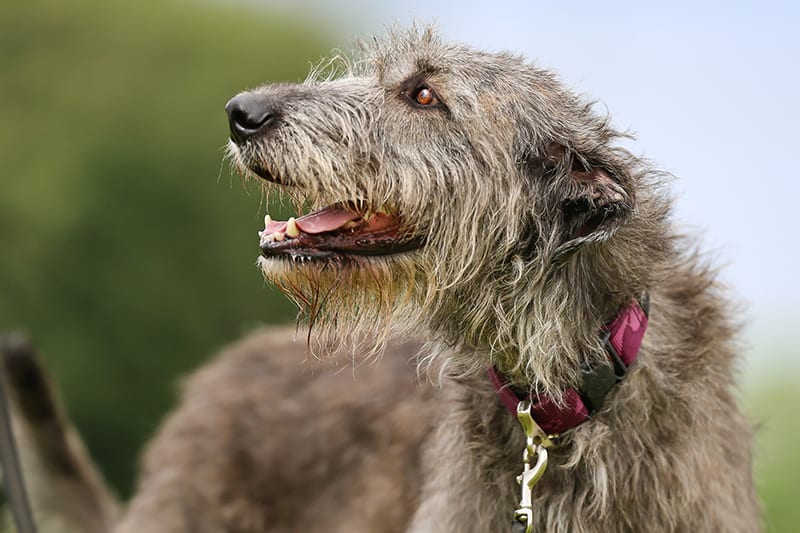What is Cushing's Disease in dogs?
Cushing's disease (hyperadrenocorticism) is a serious health condition in dogs that occurs when the adrenal glands overproduce cortisol (cortisone) in the animal's body. Excess cortisol can put a dog at risk of several serious conditions and illnesses, from kidney damage to diabetes, and can be life-threatening.
In dog's Cushing’s disease is commonly caused by a benign or malignant tumor in the pituitary gland, a pea-sized gland located at the base of the brain. In some more rare cases the tumor could be located on the adrenal glands, located on top of the kidneys.
Iatrogenic Cushing's syndrome is caused by excessive cortisol production stemming from the prolonged use of steroids.
What are the symptoms of Cushing’s disease in dogs?
Dogs with Cushing’s disease will experience at least one of the following symptoms but sometimes more:
- Increased appetite
- Excessive thirst or drinking
- Thinning of the skin
- Hair loss
- Frequent urination
- Muscle weakness
- Enlarged abdomen, potbellied appearance
- Panting
- Lethargy
If you spot any of these symptoms in your dog contact your vet immediately. Dogs with Cushing’s disease face an increased risk of developing kidney damage, blood clots, high blood pressure and diabetes
How is Cushing’s disease diagnosed?
Your veterinarian will do a physical exam and run a few tests to determine what may be causing your pet's symptoms as well as to rule out other health problems. The tests may include, but are not limited to, urinalysis, urine culture, complete blood panel, and/or full chemistry panel.
Your veterinarian may also run adrenal function tests, adrenal low dose testing, and high dose dexamethasone suppression tests. However, adrenal function tests can result in false positives when another disease with similar clinical signs is present.
An ultrasound may help to rule out other conditions that could be causing your dog’s symptoms. Other diseases that may cause similar symptoms include tumors in the spleen or liver, bladder stones, gallbladder disease, gastrointestinal disease, chronic inflammatory liver disease.
Magnetic resonance imaging (MRI) is typically the most effective diagnostic testing tool for Cushing’s disease since it allows your vet to assess your dog’s adrenal glands. However, MRI testing can be costly.
What are the treatments for Cushing’s disease in dogs?
Treatment for Cushing's disease in dogs usually includes medications that help decrease the amount of cortisone that the adrenal glands produce. The only way to cure Cushing's disease is to remove the tumor, however, due to the complexity and risks of surgery, most cases are treated with medication.
Treatments will vary based on the type of Cushing’s your dog has.
Pituitary tumor. Treatment of pituitary dependent Cushing’s disease is the most complicated. Two drugs, trilostane and mitotane are commonly used.
Adrenal tumor. Treatment of an adrenal dependent Cushing’s disease will usually require major abdominal surgery. If the entire tumor is able to be removed and the tumor is not malignant, there is a good chance that your dog will regain normal health.
Iatrogenic Cushing’s disease. Treatment requires gradual discontinuation of the steroid, usually resulting in a recurrence of the disease that was being treated by the steroid. After starting the medication treatments your dog will need to see the vet regularly for ACTH stimulation tests, until the excessive production of cortisone is controlled. Over their lifetime of your pet, routine monitoring of blood tests and medication adjustments need to be made.
Do dogs with Cushing’s disease suffer?
Health issues caused by Cushing’s disease can be minimized with diligent observation and long-term management.
Many dogs with Cushing's can be successfully treated with few medication side effects. However, the wrong dose can cause mild or severe side effects. Therefore, your pet must be carefully monitored and follow-up blood tests are essential.
Dogs who do not receive adequate monitoring and follow-up often experience relapses and severe illness or death, as a result of complications.
Note: The advice provided in this post is intended for informational purposes and does not constitute medical advice regarding pets. For an accurate diagnosis of your pet's condition, please make an appointment with your vet.
Is your dog displaying symptoms of Cushing's Disease? Contact our Huntersville, Mecklenburg County vets today to book an appointment for your pet.
Looking for a vet in Huntersville and Mecklenburg County?
We're always accepting new patients, so contact our veterinary hospital today to book your pet's first appointment.
Related Articles View All
Puppy’s First Vet Visit: Checklist & What to Expect
Set your new puppy on the path to good health by getting the most out of each vet visit. Here is what you can expect from your puppy's first vet visit, along with a checklist of things to take and questions to ask your vet.
Kitten's First Vet Visit: What to Expect
So you have just brought home a little bundle of joy. Congratulations! But make sure you're scheduling your first veterinary appointment, as well as routine exams going forward. To help you prepare, our Huntersville vets discuss what to expect at your kitten's first appointment.
How often should I take my dog to the vet?
Regular veterinary care including checkups, parasite prevention, and vaccinations are the key to keeping your dog healthy throughout their lifetime. But, how often should you take your dog to the vet, and how can you save money? Read on to find out.
Bladder Stones in Dogs
Broken jaws are an alarmingly common, and painful, injury in our canine companions. In today's post, you will learn some of the causes of a broken jaw in dogs, how they can be repaired, and a few tips on caring for your dog as their jaw heals.

